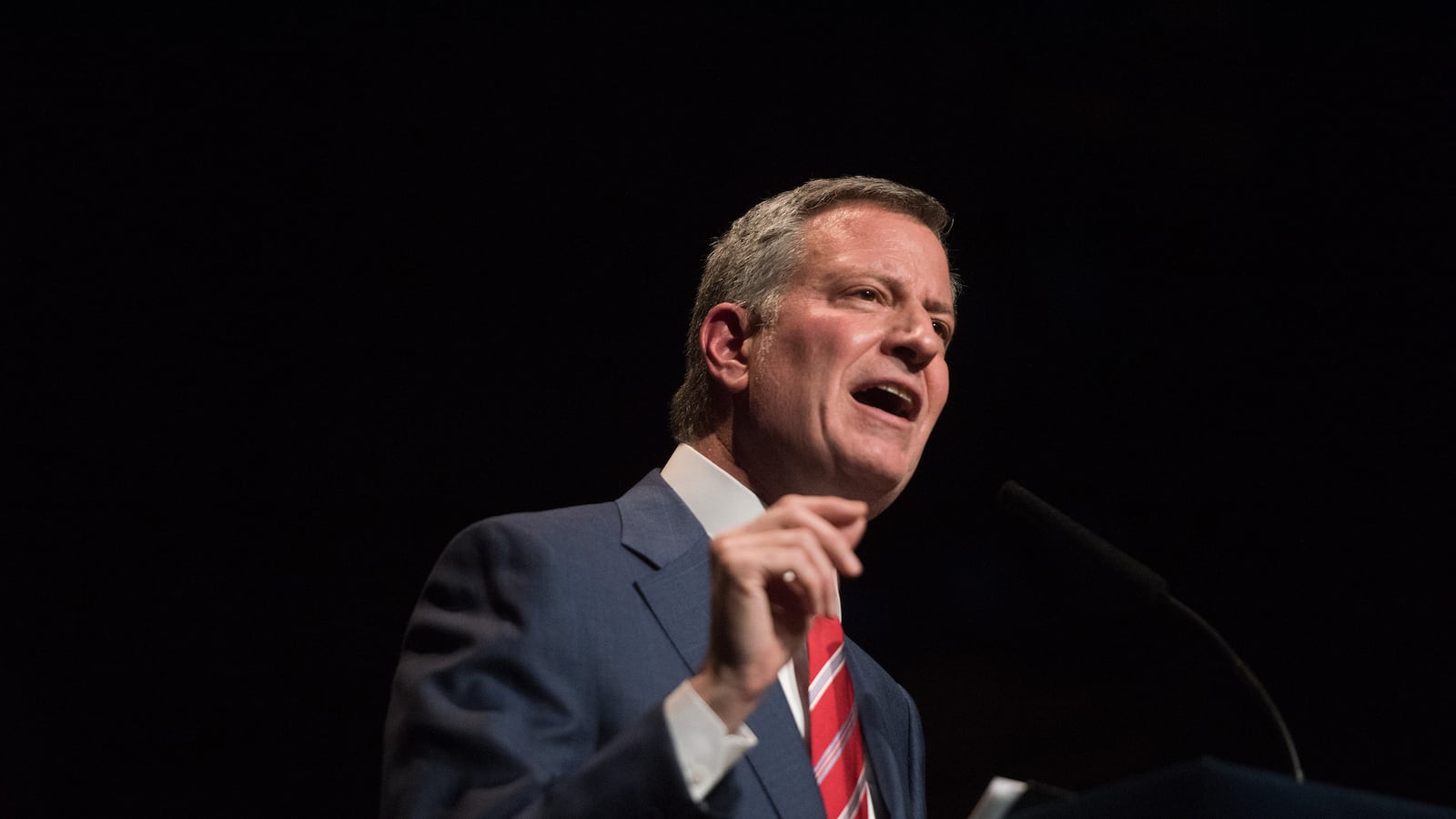Hours before Mayor Bill de Blasio took the podium to deliver the annual State of the City address, one of his harshest education critics took a preemptive swipe at his education agenda, assuming the mayor planned to discuss it.
“We expect to see and hear a lot about Renewal Schools in this evening’s State of the City address,” the pro-charter group Families for Excellent Schools sent in an email blast to reporters. “Mayor de Blasio’s signature education program is mired in failure.”
But in his roughly hour-long remarks, de Blasio didn’t mention the Renewal program, an $850 million effort designed to flood low-performing schools with extra social services and academic support. In fact, he barely discussed the city’s schools, save for three lines of the 94-paragraph speech:
If you said to me, let’s talk about education, I would say, well, the state of our schools is stronger than many of us ever could have imagined. We announced on Friday the highest graduation rate in the history of New York City: 72.6 percent of our students graduated last year.
And for all of you, like me, who saw the bad old days, we also saw the lowest dropout rate in the history of the city, 8.5 percent. The disparities are finally starting to close. There’s more progress to be had. And now we have some of the tools we always dreamed of. We have pre-K for all our kids – 70,000 kids – including one of the most famous pre-K graduates now, Gershy.
We have advanced placement courses going in not just to our elite high schools or those that have been most privileged. Advanced placement courses will be in every single one of our high schools. You saw Javeria Amir from Morris Park in the Bronx. That’s an example of what you’re going to be seeing in high schools all over the city. Now, let’s take this opportunity to thank the educators, the teachers, the administrators, everyone who works in our schools to make them great.
In addition to leaving out the Renewal program, de Blasio didn’t touch on major pillars of his “Equity and Excellence” agenda, including computer science instruction for every student. Nor did he address school segregation, despite a larger plan education officials have said is in the works.
Instead, the “lofty” and “sometimes rambling” speech focused on the city’s housing and affordability crisis.
“I don’t want to read too much into it in terms of what it means for policy — we’re probably seeing the winding down of Carmen Fariña at the helm,” said Aaron Pallas, an education professor at Columbia University’s Teachers College. Still, he added: “It was curiously flat in terms of education.”
This isn’t the first time education — which represents roughly a third of the city’s budget — hasn’t received much airtime during the annual speech. De Blasio predecessor Michael Bloomberg didn’t make much education news during his ninth “State of the City” speech, despite standing in a Queens school when he delivered it. (His eleventh address included dramatically more education policy.) And last year, de Blasio also seemed to tack away from his schools agenda.
Asked whether the speech might signal that de Blasio doesn’t plan to pin his re-election bid to his schools agenda, Pallas said it could depend on the competition.
“I’m not seeing potential opponents who are likely to make education the heart of their campaigns. A lot will depend on how the race unfolds.”

